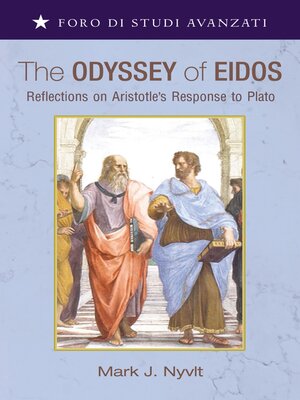The Odyssey of Eidos
ebook ∣ Reflections on Aristotle's Response to Plato · Foro di Studi Avanzati
By Mark J. Nyvlt

Sign up to save your library
With an OverDrive account, you can save your favorite libraries for at-a-glance information about availability. Find out more about OverDrive accounts.
Find this title in Libby, the library reading app by OverDrive.



Search for a digital library with this title
Title found at these libraries:
| Library Name | Distance |
|---|---|
| Loading... |
Aristotle sets the horizons of our inquiry: What is it when we say we know something? And is the object of knowledge a universal or particular [tode ti] object? Aristotle's critique of Plato's theory of form/Forms in light of his notion of actuality has generated a variety of topics that frame our inquiry: "Understanding Eidos as Form in the Works of Aristotle as Plato's Critical Student"; "Aristotle on Plato's Forms as Causes"; "Notes on the Relationship between Plato's Parmenides and Aristotle's Metaphysics Alpha"; "'Separate' and 'Inactive'? Aristotle's Most Challenging Critique of Plato's 'Forms'"; "Too Much Unity in a City Is Destructive of the City: Aristotle against Plato's Unification Project of the Polis"; "Aristotle on the Soul as Actuality"; "Delphic Piety in the De Anima of Alexander of Aphrodisias"; "Aristotle and Plotinus: Act and Potency and the Two Acts"; and "Al-Fārābīon Habit and Imagination." Here, the Peripatetic readings of form and actuality are parsed from the precipice of historical, analytic, and continental approaches to the mind/language/object problem, with advocacy of the importance of Aristotle's contribution to this inquiry for the present age.







